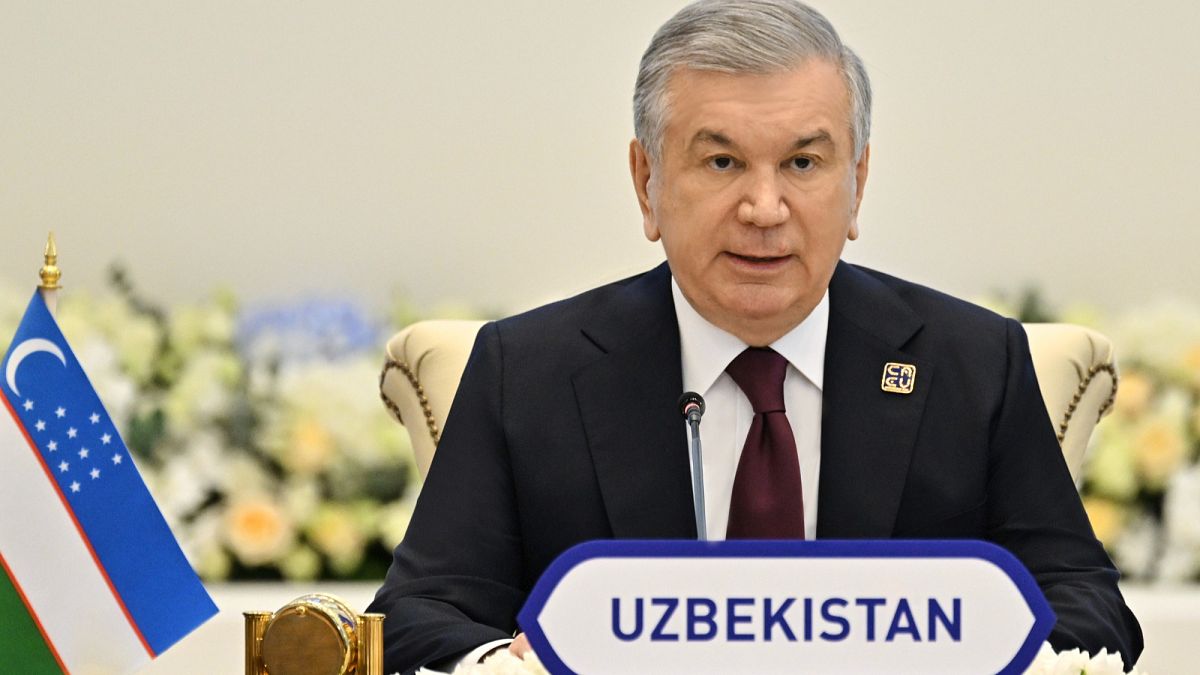By Euronews
Published on
The landmark visit of Uzbekistan’s President Shavkat Mirziyoyev to Slovenia was marked by high-level discussions and a joint business forum, as the Alpine EU member state remains a key partner to the Central Asian country.
Uzbekistan is Slovenia’s second-largest foreign trade partner in Central Asia, and the two plan to increase trade turnover to €500 million by further expanding the exchange of goods and services and investment opportunities.
During the visit, Mirziyoyev and his Slovenian counterpart Nataša Pirc Musar participated in a business forum attended by over 100 industrial and trade enterprises from both countries.
A symbolic flower-laying ceremony at the Memorial to the Victims of All Wars in Ljubljana’s Zvezda Park underscored “a sign of respect for the memory of the fallen and commitment to the ideals of peace and humanism,” Uzbekistan’s president’s office said in a statement.
In a separate meeting with Slovenian Prime Minister Robert Golob, the two governments announced the signing of several bilateral agreements, including visa exemptions for diplomatic passport holders, as well as cooperation in transportation, logistics, education, science, culture and tourism.
“The conversation was an opportunity to strengthen cooperation between the two countries – both political and economic,” Golob said in a statement on Facebook.
“Together, we build bridges between our countries – based on trust, knowledge and common goals,” he added.
Both nations have also discussed establishing direct air lines and easing Uzbekistan’s access to the EU market through Slovenia’s port of Koper.
Meanwhile, the newly established Intergovernmental Commission’s first meeting is scheduled for July in Ljubljana.
Uzbekistan’s exports to Slovenia include garments, specialised chemical products and precision tools, while Slovenia exports ceramics, stone products and furniture.
Diplomatic relations between the two countries were established in 1993, following the declarations of independence by Slovenia and Uzbekistan from the former Yugoslavia and the Soviet Union, respectively.

